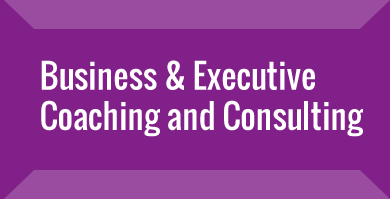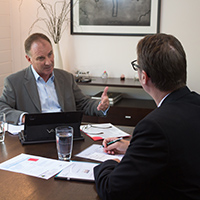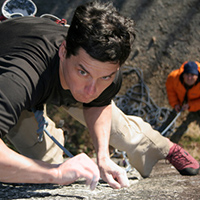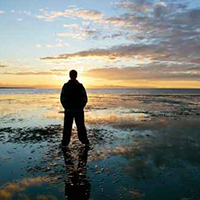Business Tips
What's so hard about asking a good question?
- Details
- Parent Category: Business Tips
- Category: Coaching
Effective questioning is about accuracy and efficiency, and the way that most people structure questions on a day-to-day basis is about neither one.
In "Find Out Anything from Anyone, Anytime" by James O. Pyle and Maryann Karinch reveals how to reframe your questioning to discover more information while building long-term skills such as rapport-building, active listening, critical thinking and numerous other competitive advantages.
Effective coaching can happen on the dance floor of conversation.
The structure and flow of effective questions probably won't come naturally. You'll need to rewire your brain to become more like Socrates and ask "open questions" to discover what is important to the person you are talking with. An open-ended question is designed to encourage a full, meaningful answer using the subject's own knowledge and/or feelings. It is the opposite of a closed-ended question, which encourages a short or single-word answer. Open-ended questions also tend to be more objective and less leading than closed-ended questions
"Questioning is about discovery and it's a process that enables you to connect with other people," explains author Pyle. "I encourage you to see questioning as a handshake. Asking questions is an invitation to a relationship."
Asking the right question is rewarding to the person being asked and to the asker. Open questions make it possible for the person being asked to yield the information you need from a source who doesn't even realise s/he has anything worthwhile to contribute.
The rule of thumb is, if you ask an open question and get an answer that suggests there might be additional information, ask that question again. So, "What's your favorite music?" gets a particular answer, and "What else do you like a lot?" is a tightly related open question that probes more deeply.
At some point the "what else" open questions lead the person to say, "That's it. Can't think of any more." Then you know you're done with that line of questioning and can move on to a directive question. For example, a directive question might be: "If you look at your favourite from each decade, what similarities do they have? Is there something common to all of your favourites?"
That question is exactly the kind of imaginative question that can trigger a spontaneous ‘Aha!’ moment response. So, we are not suggesting it be eliminated because it doesn't follow a prescribed flow or structure; we are just suggesting that the placement of it needs to be carefully considered.
For now, just consider that this question was designed to draw out psychological information about the person, not just the facts. The power of a well-structured question like that cannot be underestimated. Psychological or directional questions can take someone off guard so much that what follows is thinking, and in this case, trying to remember particular songs and what they might have in common. No easy or prepared answers readily came to mind.
The importance is viewing questioning as discovery, and the two key coaching points are:
1. In general, ask an open question for a narrative response, rather than yes or no. An obvious exception is "Will you marry me?"
2. Know when to ask, "What else?"
To do both of these things well, you probably need to fight your impulses. By learning how to question well, you are starting to change the way you think.
Source: James Pyle: Find Out Anything From Anyone, Anytime: Secrets of Calculated Questioning From a Veteran Interrogator



























